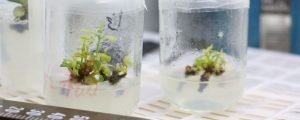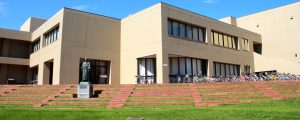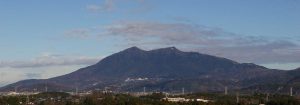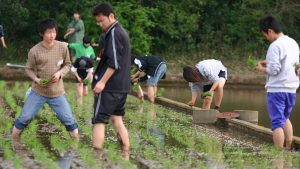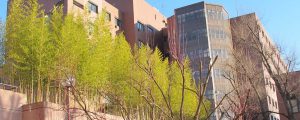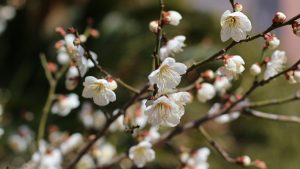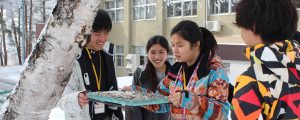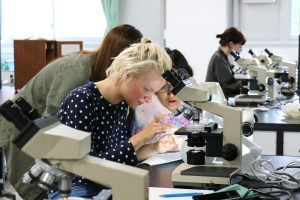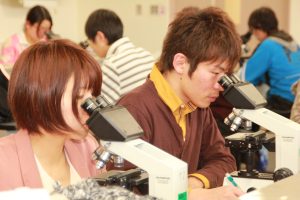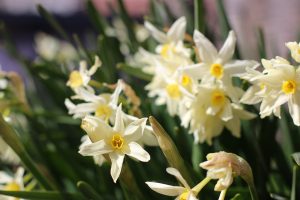Undergraduate Programs
Admission Information (Agbio)
We welcome applicants with a strong interest in agriculture, bioresource management, and related fields. Undergraduate applications for the English program are opened about one year before the enrollment. Screening takes place in two stages; a document screening first, and then an interview by teleconferencing. The quality of applicants for our program is consistently very high, and admissions to our program are competitive. We expect applicants to have a strong academic record, a demonstrable interest in agrobiological resource sciences, and sufficient ability to support themselves throughout their studies. You are required to submit a personal statement (study plan), which clearly outlines your interest in agrobiological resource sciences. Please outline any experience / internships you may […]
Finance (Bio-resource Science)
Planning your finances for university studies can be difficult. Your main expenses will be tuition, accommodation rent, food and living expenses, travel, and personal expenses. This page will provide information regarding financial information for students entering the English program in Agro-biological Resource Sciences. Tuition fees Admission fee: 282,000 yen Tuition fee: 535,800 yen per year Partial and full tuition waivers are available for high performing students with financial difficulties (details here). Scholarships The University’s Tsukuba Scholarship is open to all students, and provides 60,000 yen per month living allowance. For first grade students, the scholarship period is September to March. Thereafter, the scholarship period would be from April to March. There […]
Courses (Bioresource Science)
Our degree offers a broad education in fundamental and applied aspects of the bioresource sciences. On this page you can find a list of courses available in English. Foundation-level Courses Foundation level courses help students develop core skills required for future studies in bioresource sciences. Physics (EG02011, FallAB, Thu 4) Introduction to physics for life and environmental sciences. Basic areas of mechanics, thermodynamics, and waves will be covered.. Mathematics (EG02023, FallAB, Fri 5) Introduction to mathematics for life and environmental sciences covers application of calculus using applied differentiation and integration, logarithmic and exponential functions, first order differential equations, matrix and probability. This course emphasizes to solve problems related to […]
Bio-resource Science
The Undergraduate Interdisciplinary Program in Life and Environmental Sciences has a modular organization, which allows students to study a wide variety of subjects in early years, before specializing in one particular field in later years. First year offers a broad general education with students taking foundational courses in biology, chemistry, physics and math, along with courses in Japanese, English (for non-native speakers), cultural studies, sports and arts. We strongly encourage students to continue their Japanese language studies throughout their degree. In second and third years, students can choose from a range of specialized subjects offered by the College of Agro-Biological Resource Sciences, while broadening their understanding by selecting courses offered by the […]
Admissions – College of Biology
The College of Biological Sciences invites applications from well-qualified individuals who have a passion for biology. Undergraduate applications for the English program are open from mid-November to early January. Screening takes place in two stages; a document screening first, and then an interview by teleconferencing. The quality of applicants for our program is consistently very high, and admissions to our program are competitive. We expect applicants to have a strong academic record, a demonstrable interest in biological sciences, and sufficient ability to support themselves throughout their studies. You are required to submit a personal statement (study plan), which clearly outlines your interest in biological sciences. Please outline any experience / internships you may have […]
Finance (Biology)
Planning your finances for university studies can be difficult. Your main expenses will be tuition, accommodation rent, food and living expenses, travel, and personal expenses. This page will provide information regarding financial information for students entering the English program in Biological Sciences. Tuition fees Admission fee: 282,000 yen Tuition fee: 535,800 yen per year Partial and full tuition waivers are available for high performing students with financial difficulties (details here). Scholarships The University’s Tsukuba Scholarship is open to all students, and provides 60,000 yen per month living allowance. For first grade students, the scholarship period is September to March. Thereafter, the scholarship period would be from April to March. There are […]
Research Centers
Research is the lifeblood of any academic department. The College of Biology has over 80 research active academic staff, and is supported by three research centers; the Sugadaira Montane Research Center; the Shimoda Marine Research center; and the Gene Research Center. Sugadaira Research Center The Sugadaira Research Center is one of the leading highland field study and education centers in Japan. The Sugadaira plateau in Nagano Prefecture is located 1300 meters above sea level. The center has an average annual temperature of 6.6°C, with mid-winter temperatures as low as minus 25°C. There are many rare plant species and a wide variety of animal species found at Sugadaira, many of which […]
Graduation Research
Graduation research is the cumulation of your hard work over four years. You will join a faculty member’s lab, and complete a year long research project. Some examples can be seen below Title Supervisor Effect of the holoparasite O. minor on clover host growth Louis Irving Production of chimeric HEV-VLP-M2 protein in tomato fruit and tobacco leaves as edible vaccine against influenza A virus Michiyuki Ono Localization of encapsulation promoting lectin (EPL) in the hemocytes of Mythimna separata Seiichi Furukawa Effect of mutiple nutrient pressures on differential root growth of Poa annua Louis Irving Functional analysis of gnl3 by reverse genetics and overexpression in Dictyostelium discoiduem Hidekazu Kuwayama The role […]
Course list
Our degree offers a broad education in fundamental and applied aspects of the biological sciences. On this page you can find a list of courses available in English. Foundation-level Courses Foundation level courses help students develop a broad view of biological sciences, allowing them to explore new subjects. Introduction to Systematics and Evolutionary Bio (EB11151, FallC, Tue / Wed 2) Outlines the phylogeny and evolution of living organisms, which are the basis of biology, along with textbooks. This lecture deals with the evolutionary mechanisms that created biological diversity, and the taxonomy of the entire biological world, in relation to the underlying phylogenetic tree and changes in the global environment. […]
Program structure
Students are required to complete a minimum of 124 credits to graduate. Credits are split into foundational courses, liberal arts and languages, major subjects, and elective credits. Students are required to complete a minimum number of credits in each section in order to graduate. Lectures Lectures form the basis for undergraduate courses. These allow students to develop their knowledge and understanding of the field by taking instruction from leading scientists in their fields. One credit is the equivalent of ten 75-minute lectures, with 2-hours of self-study for every hour of class time. Most lecture courses are 1 or 2 credits. Assessment is normally by a mix of in-class reports […]
